8 Great Philosophical Questions That We'll Never Solve
Philosophy goes where hard science can't, or won't. Philosophers have a license to speculate about everything from metaphysics to morality, and this means they can shed light on some of the basic questions of existence. The bad news? These are questions that may always lay just beyond the limits of our comprehension.
Here are eight mysteries of philosophy that we'll probably never resolve.
1. Why is there something rather than nothing?
Our presence in the universe is something too bizarre for words. The mundaneness of our daily lives cause us take our existence for granted — but every once in awhile we're cajoled out of that complacency and enter into a profound state of existential awareness, and we ask: Why is there all thisstuff in the universe, and why is it governed by such exquisitely precise laws? And why should anything exist at all? We inhabit a universe with such things as spiral galaxies, the aurora borealis, and SpongeBob Squarepants. And as Sean Carroll notes, "Nothing about modern physics explains why we have these laws rather than some totally different laws, although physicists sometimes talk that way — a mistake they might be able to avoid if they took philosophers more seriously." And as for the philosophers, the best that they can come up with is the anthropic principle — the notion that our particular universe appears the way it does by virtue of our presence as observers within it — a suggestion that has an uncomfortably tautological ring to it.
2. Is our universe real?
This the classic Cartesian question. It essentially asks, how do we know that what we see around us is the real deal, and not some grand illusion perpetuated by an unseen force (who René Descartes referred to as the hypothesized ‘evil demon')? More recently, the question has been reframed as the "brain in a vat" problem, or theSimulation Argument. And it could very well be that we're the products of an elaborate simulation. A deeper question to ask, therefore, is whether the civilization running the simulation is also in a simulation — a kind of supercomputer regression (or simulationception). Moreover, we may not be who we think we are. Assuming that the people running the simulation are also taking part in it, our true identities may be temporarily suppressed, to heighten the realness of the experience. This philosophical conundrum also forces us to re-evaluate what we mean by "real." Modal realistsargue that if the universe around us seems rational (as opposed to it being dreamy, incoherent, or lawless), then we have no choice but to declare it as being real and genuine. Or maybe, as Cipher said after eating a piece of "simulated" steak in The Matrix, "Ignorance is bliss."
3. Do we have free will?
Also called the dilemma of determinism, we do not know if our actions are controlled by a causal chain of preceding events (or by some other external influence), or if we're truly free agents making decisions of our own volition. Philosophers (and now some scientists) have been debating this for millennia, and with no apparent end in sight. If our decision making is influenced by an endless chain of causality, then determinism is true and we don't have free will. But if the opposite is true, what's called indeterminism, then our actions must be random — what some argue is still not free will. Conversely, libertarians (no, not political libertarians, those are other people), make the case for compatibilism — the idea that free will is logically compatible with deterministic views of the universe. Compounding the problem are advances in neuroscience showing that our brains make decisions before we're even conscious of them. But if we don't have free will, then why did we evolve consciousness instead of zombie-minds? Quantum mechanics makes this problem even more complicated by suggesting that we live in a universe of probability, and that determinism of any sort is impossible. And as Linas Vepstas has said, "Consciousness seems to be intimately and inescapably tied to the perception of the passage of time, and indeed, the idea that the past is fixed and perfectly deterministic, and that the future is unknowable. This fits well, because if the future were predetermined, then there'd be no free will, and no point in the participation of the passage of time."
4. Does God exist?
Simply put, we cannot know if God exists or not. Both the atheists and believers are wrong in their proclamations, and the agnostics are right. True agnostics are simply being Cartesian about it, recognizing the epistemological issues involved and the limitations of human inquiry. We do not know enough about the inner workings of the universe to make any sort of grand claim about the nature of reality and whether or not a Prime Mover exists somewhere in the background. Many people defer to naturalism — the suggestion that the universe runs according to autonomous processes — but that doesn't preclude the existence of a grand designer who set the whole thing in motion (what's called deism). And as mentioned earlier, we may live in a simulation where the hacker gods control all the variables. Or perhaps the gnostics are right and powerful beings exist in some deeper reality that we're unaware of. These aren't necessarily the omniscient, omnipotent gods of the Abrahamic traditions — but they're (hypothetically) powerful beings nonetheless. Again, these aren't scientific questions per se — they're more Platonic thought experiments that force us to confront the limits of human experience and inquiry.

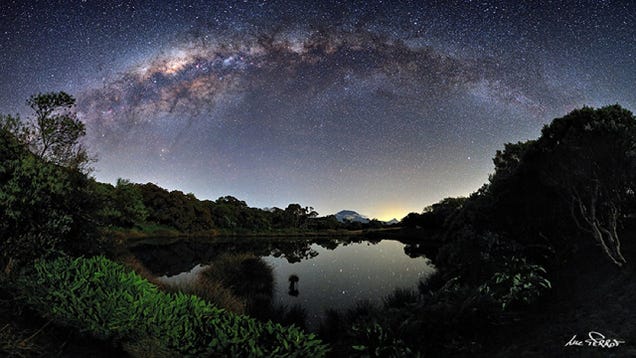
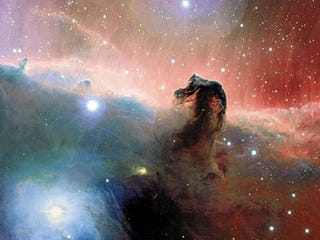
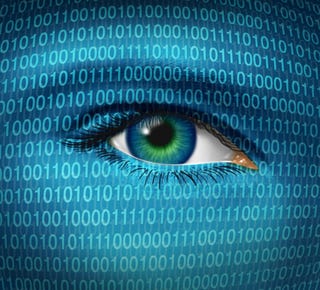
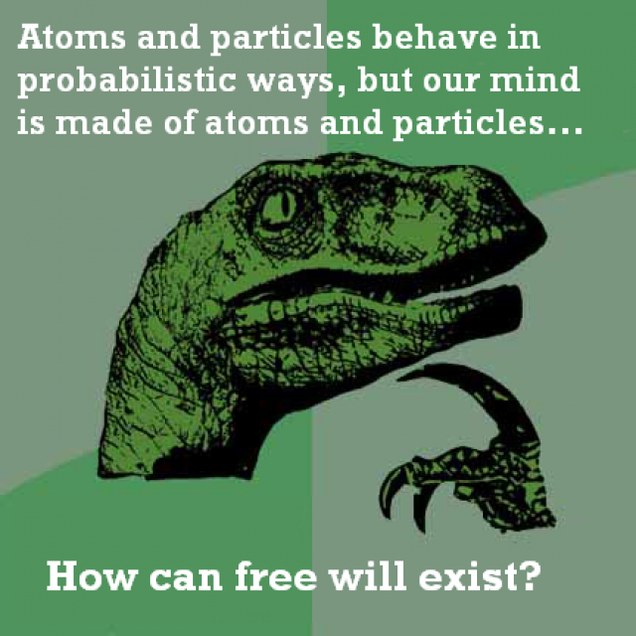
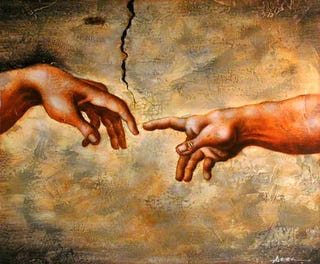
No comments:
Post a Comment